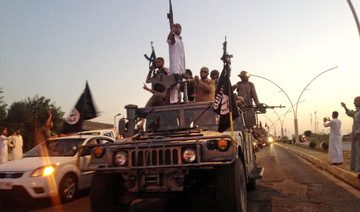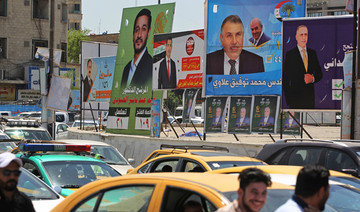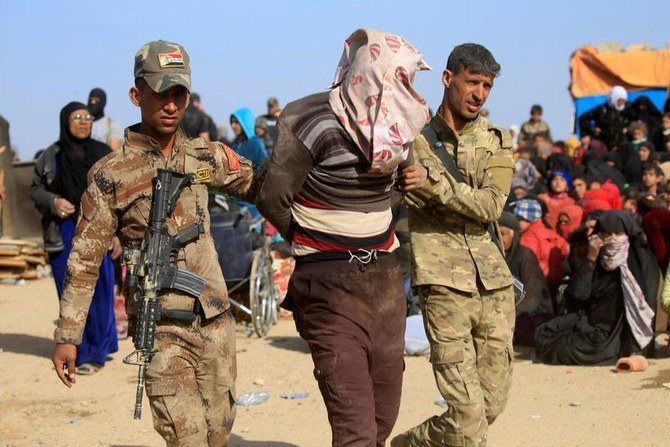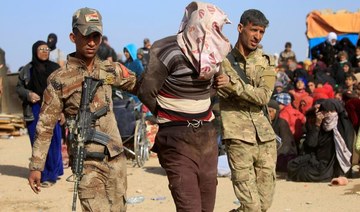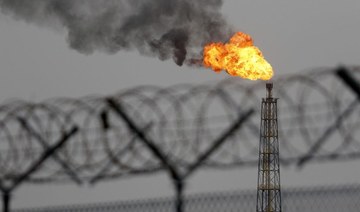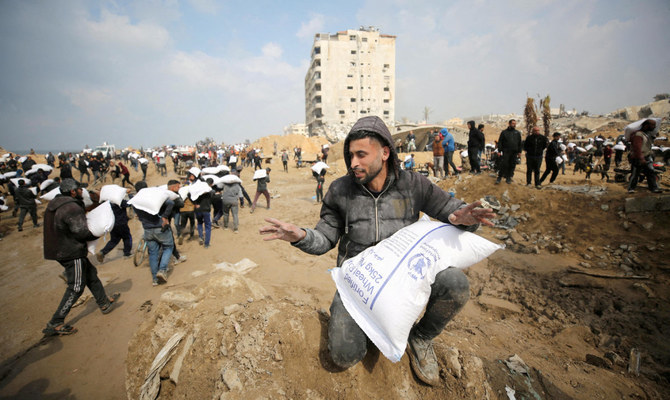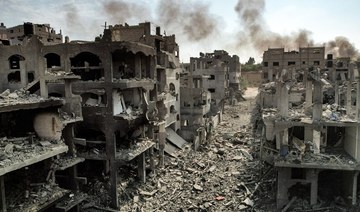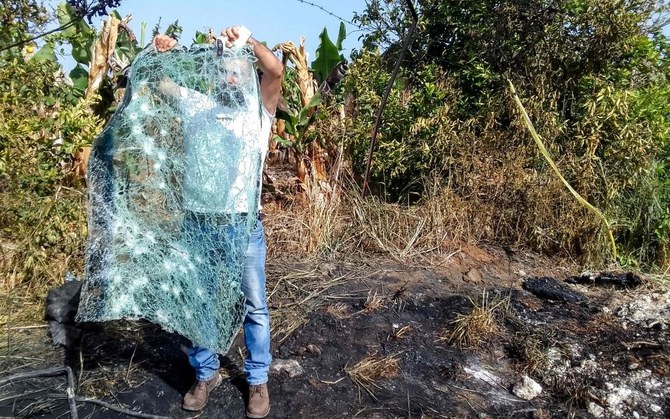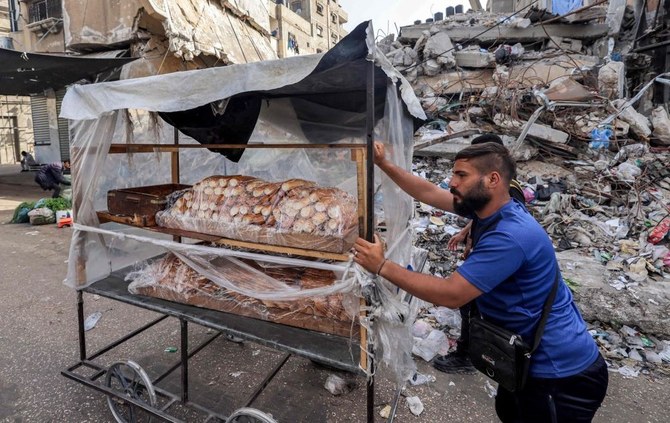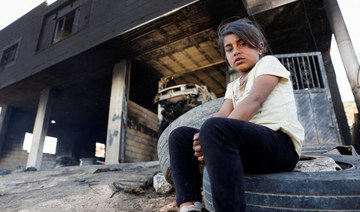BAGHDAD: Elections in Iraq on Saturday suffered the lowest turnout of any vote since the US-led 2003 invasion, with a population jaded by government corruption.
The Independent High Electoral Commission said on Saturday night just 44.5 percent of registered voters had cast their ballots.
Across Baghdad, the streets were quiet throughout the day with officials and monitors saying just 30 percent went out to vote in some Shiite areas, election monitors said.
There was relief, however, that just a few months since Daesh was declared defeated, there were no attacks on polling stations. The vote passed off almost free of violence, with just one explosion in Kirkuk killing three people.
About 7,000 Iraqi candidates ran for 329 seats representing 18 provinces.
Prime Minister Haider Abadi is hoping to fend off challenges from his predecessor, Nuri Al-Maliki, and a pro-Iranian militia leader, Hadi Al-Amiri.
Tight security measures were imposed for the voting, including shutting down border crossings and airports, and restrictions on vehicle movements in all provinces.
But as the poor turnout became clear in the morning, Abadi ordered the restrictions to be lifted in an attempt to encourage citizens to take part in voting.
By noon, Baghdad’s streets were almost empty with hundreds of troops and security vehicles deployed in every square and temporary blast walls blocking the roads.
In eastern Baghdad, candidates’ banners disappeared as youths dismantled the posters to salvage the steel frames.
“We have visited 60 voting stations across Baghdad, and our initial conclusion suggests that the turnout is very weak,” Ali Naji, head of a local monitoring team, told Arab News in the capital’s upmarket Al-Mansour district.
“There is a clear reluctance to participate in the elections this time.”
In the impoverished Sadr City, home to about 5 million people, the streets were unusually empty, except for a few cars ignoring the curfew.
Sadr City is crucial in deciding which list or coalition will win the election.
A young man dragged a tiny girl waving a small Iraqi flag behind him, while a woman in her 20s wearing a traditional black abaya and carrying a child in her arms walked slowly to a polling station.
An elderly woman wearing an abaya and standing near the blast walls blocking vehicles from reaching the polling station called out to voters to support Al-Maliki, the former prime minister and head of State of Law coalition.
“It is almost 1 p.m. and no more than 30 voters out of 250 have come to vote so far,” Taher Fadhil, a manager of a polling station in Sadr City, told Arab News.
“The reluctance is great and clear. People have a sense of futility, no work, no services and even no medical services.
“What do you expect from people?”
While the official turnout had not been announced last night, initial indications suggest it might struggle to get above 40 percent across Iraq.
In the three previous elections since the 2003 US-led invasion that toppled Saddam Hussein, the majority Shiite population has participated enthusiastically. Shiite electoral blocs have easily secured enough votes to form a government.
The situation has changed since 2014, when Daesh militants swamped the northern and western parts of the country and seized almost a third of Iraqi territory.
The militants have been defeated, but corruption has become even more rampant across all sectors of the state. Both Shiites and Sunnis have become jaded by corruption levels that rank among the worst in the world and frustrated at the failures of the government.
The previous three elections have also shown the dominance of the same political blocs.
The turnout in Baghdad is expected to fall below 30 percent and it was weak in both Sunni and Shiite districts. Many Sunni mosques used loudspeakers to urge people to vote. Shiites candidates circulated photos of representatives of Ayatollah Ali Al-Sistani, the most revered Shiite cleric in Iraq, and Muqtada Al-Sadr, the influential Shiite leader, in a bid to lift the turnout.
“I did not vote because all the candidates belong to the same political blocs, and even the new ones belong to them,” Abu Ahmed, a garage owner in the Sunni Dora district of Baghdad, told Arab News.
“Those (the blocs) do not represent anyone but themselves. I mean all of them, including the Shiites and Sunnis.
“All these blocs have abused people. They have robbed us to finance themselves and their parties, so why should I vote for any of them?”





